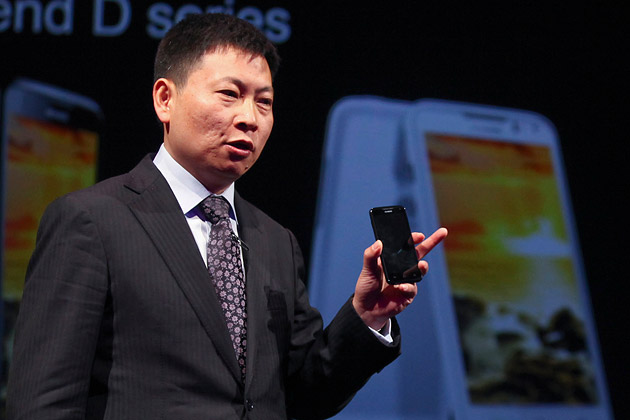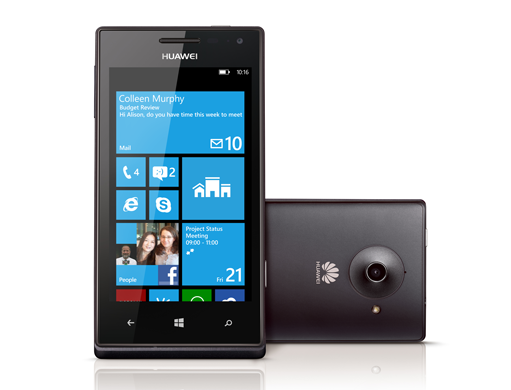Huawei Boss: Windows Phones "On Hold," Tizen "No Chance Of Success"
In a recent interview with the Wall Street Journal, Huawei boss Richard Yu mentioned that Huawei would no longer be making Windows Phones and that Tizen is a dead-end platform for the company.
While HTC has recently adopted (again, after a long break) Windows Phone for its HTC M8 phone, Huawei seems to be going the other direction, having lost money on this platform over the past two years.
"We have tried using the Windows Phone OS. But it has been difficult to persuade consumers to buy a Windows phone. It wasn't profitable for us. We were losing money for two years on those phones. So for now we've decided to put any releases of new Windows phones on hold."
The Windows Phone market share has been on a decline lately, so it's not completely unreasonable of him to make the decision to end Windows Phone support.
The Tizen platform doesn't seem to interest Yu, either.
“We have no plans to use Tizen. Some telecom carriers are pushing us to design Tizen phones but I say 'no' to them. In the past we had a team to do research on Tizen but I canceled it. We feel Tizen has no chance to be successful.”
Tizen, just like any other operating system trying to take on Android and iOS, has no chance of being successful if it's not going to be used by more than the OEM building it (in this case, Samsung). No single company can be very successful with a new OS anymore. Even Apple, which was the first to truly start the "touchscreen smartphone revolution," is currently at only 12 percent market share with iOS, globally.
Get Tom's Hardware's best news and in-depth reviews, straight to your inbox.
However, iOS remains very successful as a platform because Apple had a significant head start in both smartphones and tablets -- and because Apple products continue to remain popular not just with customers in the US (still one of the biggest mobile markets) but also with American developers, who make the most mobile apps on these platforms.
Taking all of that into consideration, it's probably smart of Huawei to double down on Android, which is responsible for its fast smartphone sales growth over the past few years. It is the reason Huawei is one of the main threats to Samsung now, instead of putting resources into other operating systems that aren't showing any signs of growth anytime soon.
Follow us @tomshardware, on Facebook and on Google+.
Lucian Armasu is a Contributing Writer for Tom's Hardware US. He covers software news and the issues surrounding privacy and security.
-
DelightfulDucklings I would have to agree that I don't think there is any space for Tizen in the mobile space unless it can really bring something amazingReply -
faisalkhan01 You might want to have a look:Reply
Amazon to acquire twitch, giving a competition to its fellow rival Google
http://geekthem.com/amazon-acquires-twitch-online-streaming-gaming-site/ -
alz_solstice Looks like all Smartphone manufacturers are going for Windows Phone OS. Good Innovation.Reply -
I'd get a windows phone. Because it has everything I want, especially Internet Explorer!Reply
Yes, and I love chewing on rusty nails. -
Blazer1985 Instead I'll get an android because it's so fun to give location, photo, contacts access permission to every "free" app.Reply
But I see your point with Windows Explorer:-D -
icemunk We're getting there.. Windows Phone is simply going to disappear and become Windows. It will be x86, run on a PC, and also run on phones and tablets. You already see it happening as Windows 8.1 tablets are popping up at $100 these days... simply add a 4G modem, and now you have a smart-phone.Reply -
chicofehr If only microsoft didn't bail out apple when it was going bust. If only they bought google when it was still a startup. Too late :-PReply -
I read all the reviews & comments for Windows phone. So much negativity surrounding it, no wonder why people are put off investing. After looking for a new phone, I wanted something other than Android & iphone. I ignored the biased reviews & silly user comments, bought the Lumia 930 & can truly say this rig is incredible!!! Well done Microsoft!!! This OS (for me) craps all over the competition & is a breath of fresh air. Huawei should really reconsider the "on hold" decision for the WP as from a user perspective, the WP will be going places fast in the near future. A mature OS that can run fluently on less hardware, is well presented & optimised by a company that dominates the computing market. The app store seems saturated with good quality apps, I have found every app that I need (and more) to date. List continues to grow too & with more traction, more of those obscure apps people quote (& to be honest, probably only use once a year or so, if that) not being listed in the app store will probably show up. I have come to the conclusion it's cool to bash Microsoft, regardless of what they achieve & I'm not sure why. Credit where credit is due.Reply
-
B4vB5 Owner of both an iPhone and a WP8(Windows Phone 8) here. I ditched my old iPhone 4S for a Nokia 930 and it was initially a rough ride as I have my main mail accounts as Gmail and Google Drive.Reply
But truth be told, WP8 is trying hard and doing decently and the apps may be few and rare, but they are of high enough quality for by far the most things. The HW is EXCELLENT and if Nokia phones could run Android by rooting them(which I believe they can) it would be the best phones out there for Android as well.
This is why Huawei and WP don't mean jack! Sure, Nokia will have almost monopoly on WP phones, but since they are owned by MS, they can make the HW they want and WP will automatically have drivers and apps ready for them, just like iPhones and iOS fits like a glove. No KitKat waiting there.
And while Android has a free-for-all coding standard that leads to malware in alot of apps, WP has some control but not user-hostile like Apple and you can basically use you phone as an USB key in Windows. If only more apps would come WP's way, then it could and should get 33% of the market, cause no way MS is just backing out after buying Nokia. -
atintop I agree with him, I think if a giant like microsoft couldn't make its OS a succes then Tizen have a very small chancesReply
____________________________________________________________________accessoires galaxy note 3 galaxy note 3 promo

